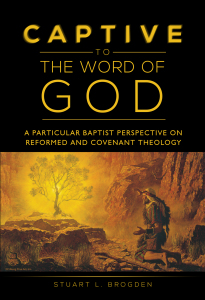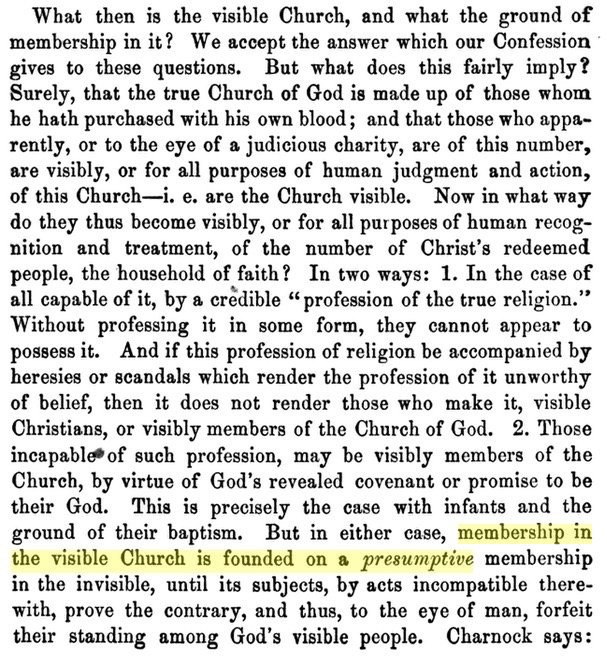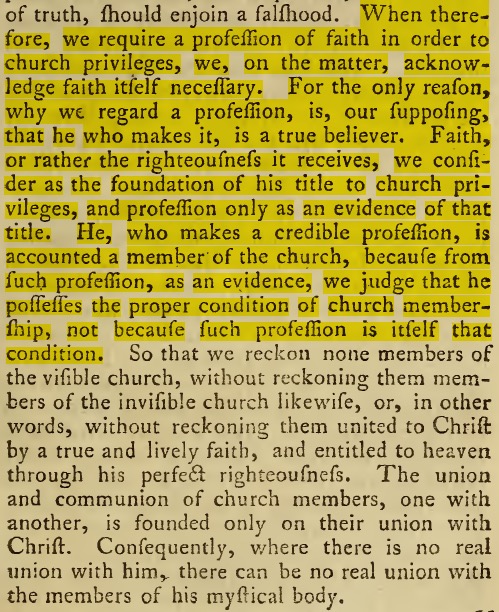NCT
“Getting the Garden Right” Interviews
On 30, May 2017 | In Audio, Resources, Richard Barcellos | By Brandon Adams
Regular Reformed Guys: Episode 37: Getting the Garden Right
Podcast: Play in new window | Download
Subscribe: iTunes | Android | RSS
Pastor Richard Barcellos joins the Regular Reformed Guys to talk about his upcoming, as yet unnamed book about the Covenant of Works, the Garden of Eden and a number of other questions in relation to the New Covenant Theology.
This is one of those meaty episodes. We hope you enjoy it as much as we did.
Theology on the Go: Getting the Garden Right Podcast
How important are the first chapters of Genesis to our understanding of the whole of Scripture? What happens to our perspective if we isolate Genesis 1-3 from the rest of God’s Word?
Richard Barcellos drops in. He’s written Getting the Garden Right: Adam’s Work and God’s Rest in Light of Christ. The book is a sharp analysis of both the covenant of works and the Sabbath.
Was Adam called to simply tend the Garden of Eden, or was there a greater goal given even before the fall? Richard paints the big picture, applying Scriptural proofs along the way.
Full Armor Radio: Getting the Garden Right | Interview with Dr. Richard Barcellos
Episode 36 is live! In this episode I interview Dr. Richard Barcellos, pastor of Grace Reformed Baptist Church in Palmdale, CA, about his most recent book – Getting the Garden Right: Adam’s Work and God’s Rest in Light of Christ.
A 1689 Federalism Response to Wellum’s “Progressive Covenantalism and the Doing of Ethics”
On 14, Mar 2016 | In Resources | By Brandon Adams
A 20 page paper by Stephen J. Wellum titled “Progressive Covenantalism and the Doing of Ethics” was posted in the New Covenant Theology Facebook group recently [Note: it has since been removed as it was not supposed to be posted publicly – it will be available in this volume]. It presents a good opportunity to bring to attention some of the important areas where 1689 Federalism (a particular version of covenant theology) disagrees with Westminster Federalism (what Wellum simply refers to as “covenant theology”), as well as highlight where 1689 Federalism believes Progressive Covenantalism errs. My comments will be brief, and I won’t be summarizing his argument, so make sure to read it first…
ConfessingBaptist.com Roundup of NCT Resources
On 02, Sep 2015 | In Resources | By Brandon Adams
of New Covenant Theology [Resource Roundup]
(Note: not every single resource listed is necessarily coming from a specifically 1689 Federalism perspective)
2015 GPTS: New Covenant Theology
On 07, Apr 2015 | In Audio, Resources, Richard Barcellos | By Brandon Adams
|
The following is thanks to The Confessing Baptist:
Here is the PowerPoint he prepared for the lecture but note that “The lecture does not follow the PowerPoint presentation due to various unforeseen factors.”
The Panel Discussion (Day 1) also featured Richard Barcellos with most of the questions directed towards him. Also on the panel was Jospeh Pipa and Tony Curto. Below is a timeline followed by the audio:
• 00:52 – 08:35 “In relation to the threefold division of the law, how should we understand the distinction of clean and unclean animals in Genesis 7 and what appears to be Levirate Marriage in Genesis 38?”
• 08:47 – 10:20 “Do you disagree with the Marrow Men and Fisher when they say that the substance of the Covenant of Works was Moral Law?”
• 10:44 – 13:45 “Did John Bunyan hold the Mosaic Covenant to be a republication of the Covenant of Works for eternal life?”
• 13:50 – 17:38 “Can you explain New Covenant [Theology’s] interpretation of Jeremiah 31:31ff and offer a critique?”
• 14:47 – 22:33 “Can you make a few comments about the use of the law to bring a Christian to Christ in the context of counseling…”
• 22:38 – 24:34 “What is the best and most succinct way to defend Sabbath keeping for those who claim that since it is not a command repeated in the New Testament it is not applicable to Christians.”
• 24:43 – 28:28 “What key passages from the Apostolic practice of evangelism among the Gentiles demonstrate the Law’s role in Gospel work.”
• 28:36 – 31:48 “Given the denial of the three-fold division of the law by New Covenant Theology advocates what Biblical principles govern their understanding of the day of worship?”
• 31:56 – 42:00 “Would you open up more practically how one might open up the law… in terms of evangelism.”
JOHN OWEN AND NEW COVENANT THEOLOGY
On 17, Feb 2015 | In Richard Barcellos | By Brandon Adams
JOHN OWEN AND NEW COVENANT THEOLOGY:
Owen on the Old and New Covenants and the Functions of the Decalogue in Redemptive History in Historical and Contemporary Perspective
Richard C. Barcellos
John Owen was a giant in the theological world of seventeenth century England. He is known today as quite possibly the greatest English theologian ever. His learning was deep and his writings thorough and profound. He has left the Christian Church with a legacy few have equaled in volume, fewer yet in content. In saying this of Owen, however, it must also be recognized that some things he said are difficult to understand. Some statements may even appear to contradict other statements if he is not followed carefully and understood in light of his comprehensive thought and the Reformation and Post-Reformation Protestant Scholastic world in which he wrote.
If one reads some of the difficult sections of Owen’s writings, either without understanding his comprehensive thought and in light of the theological world in which he wrote, or in a superficial manner, some statements can easily be taken to mean things they do not. When this is done, the result is that authors are misunderstood and sometimes, subsequent theological movements are aligned with major historical figures without substantial and objective warrant. Two such instances of this involve John Owen and New Covenant Theology (NCT).
John G. Reisinger claims that Owen viewed the Old Covenant1 as “a legal/works covenant.”2 He goes on and says:
This covenant was conditional because it was a legal/works covenant that promised life and threatened death. Israel failed to earn the blessings promised in the covenant. But under the New Covenant, the Church becomes the Israel of God and all her members are kings and priests (a kingdom of priests). Christ, as our Surety (Heb. 7:22), has kept the Old Covenant for us and earned every blessing it promised.3
The reader of Owen’s treatise on the Old and New Covenants in his Hebrews commentary, however, will quickly realize that Reisinger’s comments above do not give the full picture of Owen’s position. For Owen did not view the Old Covenant as a covenant of works in itself. He viewed it as containing a renewal of the original covenant of works imposed upon Adam in the Garden of Eden,4 something emphatically denied by Reisinger.5 Neither did Owen teach that Christ “kept the Old Covenant for us and earned every blessing it promised.”6 On the contrary, Owen taught that obedience or disobedience to the Old Covenant in itself neither eternally saved nor eternally condemned anyone and that its promises were temporal and only for Israel while under it.7 According to Owen, what Christ kept for us was the original Adamic covenant of works, not the Old Covenant as an end in itself. Owen says:
The phrase ‘Old Covenant’ will be used throughout as a synonym for ‘Mosaic or Sinai Covenant.’ ↩
John G. Reisinger, Tablets of Stone (Southbridge, MA: Crown Publications, Inc., 1989), 36. ↩
Reisinger, Tablets of Stone, 37. ↩
John Owen, The Works of John Owen (Edinburgh, Scotland: The Banner of Truth Trust, 1991), XXII:78, 80, 81, 89, 142. Owen viewed the Old Covenant as containing a works-inheritance principle of the broken covenant of works. The reintroduction of this element of the covenant of works, however, functioned on a typological level under the Old Covenant and applied to temporal promises and threats alone. See Mark W. Karlberg, Covenant Theology in Reformed Perspective (Eugene, OR: Wipf and Stock Publishers, 2000), 167, 184, 217, 218, 248, 273, 346, and 366 for a similar understanding of the works principle of the Old Covenant as it relates to the covenant of works on the typological level of kingdom administration. ↩
The following is taken from John G. Reisinger Abraham’s Four Seeds (Frederick, MD: New Covenant Media, 1998), 129. In it he denies both the covenant of works and the covenant of grace as traditionally understood. “Some time ago I discussed the basic theme of this book with a group of Reformed ministers that was about equally divided on the subject of Covenant Theology, Dispensationalism, and the view that I hold. Several of those who held strongly to Covenant Theology insisted on using the term covenant of grace as if it had the authority of a verse of Scripture. They made no attempt to prove their assertions from Scripture texts. They kept speaking in terms of logic and theology. I finally said, ‘We agree that the Bible is structured around two covenants. However, the two covenants that you keep talking about, namely, a covenant of works with Adam in the garden of Eden and a covenant of grace made with Adam immediately after the fall, have no textual basis in the Word of God. They are both theological covenants and not biblical covenants. They are the children of one’s theological system. Their mother is Covenant Theology and their father is logic applied to that system. Neither of these two covenants had their origin in Scripture texts and biblical exegesis. Both of them were invented by theology as the necessary consequences of a theological system.’” Though Reisinger denies the Edenic covenant of works, he does not deny the theology of the covenant of works entirely. He simply does not go back far enough in redemptive history for its basis (cf. Hosea 6:7 and Romans 5:12ff). Because of holding to a modified covenant of works position (i.e., the Mosaic Covenant is the covenant of works), Reisinger’s writings uphold the law/gospel distinction which is crucial in maintaining the gospel of justification by faith alone. For this he is to be commended. ↩
Reisinger, Tablets of Stone, 37. ↩
Owen, Works, XXII:85, 90, 92. ↩
Radio: New Covenant Theology & The Law
On 29, Jan 2015 | In Audio, Richard Barcellos | By Brandon Adams
|
Kingdom Through Covenant (Review)
On 01, Dec 2014 | In Resources, Samuel Renihan | By Brandon Adams
Kingdom through Covenant: A Biblical-Theological Understanding of the Covenants
A Review Article
Samuel Renihan1
Just as the Israelites feared to enter Canaan because there were giants in the land, so also the one who approaches Kingdom through Covenant2 must consider the viability of digesting and interacting with a work of such magnitude. That being said, Gentry and Wellum have produced a book worthy both of digestion and interaction. Read more…
Samuel Renihan, M.Div., is a pastor at Trinity Reformed Baptist Church, La Mirada, CA. This review article was published in the Journal of the Institute of Reformed Baptist Studies (2014): 153-76, and is used with permission from RBAP. ↩
Peter J. Gentry and Stephen J. Wellum, Kingdom through Covenant: A Biblical-Theological Understanding of the Covenants (Wheaton, IL: Crossway, 2012, 848pp.). ↩
Kingdom through Covenant, A Review Article by Samuel Renihan
On 07, Apr 2014 | In Resources, Samuel Renihan | By Brandon Adams
Journal of the Institute of Reformed Baptist Studies, 2014

It finally arrived!
Product description
The Journal of the Institute of Reformed Baptist Studies (JIRBS) is published to explain and support the theology of Holy Scripture as it is summarized in the Second London Baptist Confession of Faith. The journal will be published annually.
226 pages
Published 2014
Articles
- COMMUNION AT THE LORD’S SUPPER: 1 Corinthians 10:16 in its Exegetical and Confessional Context by Richard C. Barcellos
- SEPARATING GOD’S TWO KINGDOMS: Two Kingdom Theology among New England Baptists in the Early Republic by Ronald Baines
- ‘THAT STRONG HOLD OF THEIR COMMON FAITH’: Salvation in Christ Alone among Seventeenth-Century Baptists by James M. Renihan
- OF THE NATURE OF GOD: The Inter-Relation of Essence and Trinity in Edward Leigh’s A Systeme or Body of Divinity (1662) by Stefan T. Lindblad
- STILL IMPASSIBLE: Confessing God without Passions by James E. Dolezal
- Kingdom through Covenant: A Biblical-Theological Understanding of the Covenants, A Review Article by Samuel Renihan
Captive to the Word of God – A Particular Baptist Perspective on Reformed and Covenant Theology
N ote: Don’t be confused by the title. This is not a book on 1689 Federalism. It is written by a proponent of NCT. It criticizes confessional subscription and argues the 1689’s understanding of the Mosaic Covenant, Adamic Covenant, and the law is unbiblical. This book is not recommend.
ote: Don’t be confused by the title. This is not a book on 1689 Federalism. It is written by a proponent of NCT. It criticizes confessional subscription and argues the 1689’s understanding of the Mosaic Covenant, Adamic Covenant, and the law is unbiblical. This book is not recommend.
For a more detailed analysis, please see Review: Captive to the Word of God – A Particular Baptist Perspective on Reformed and Covenant Theology




